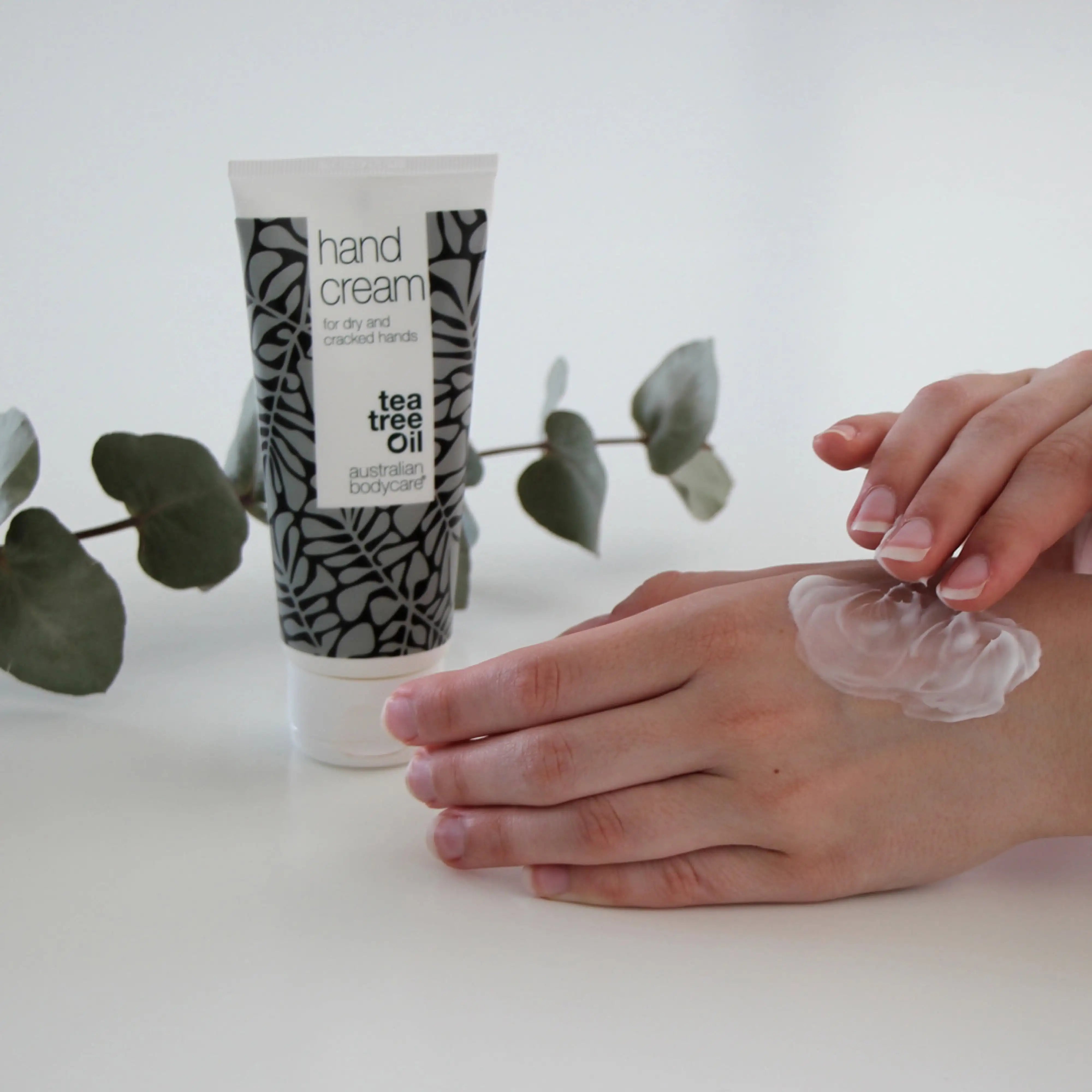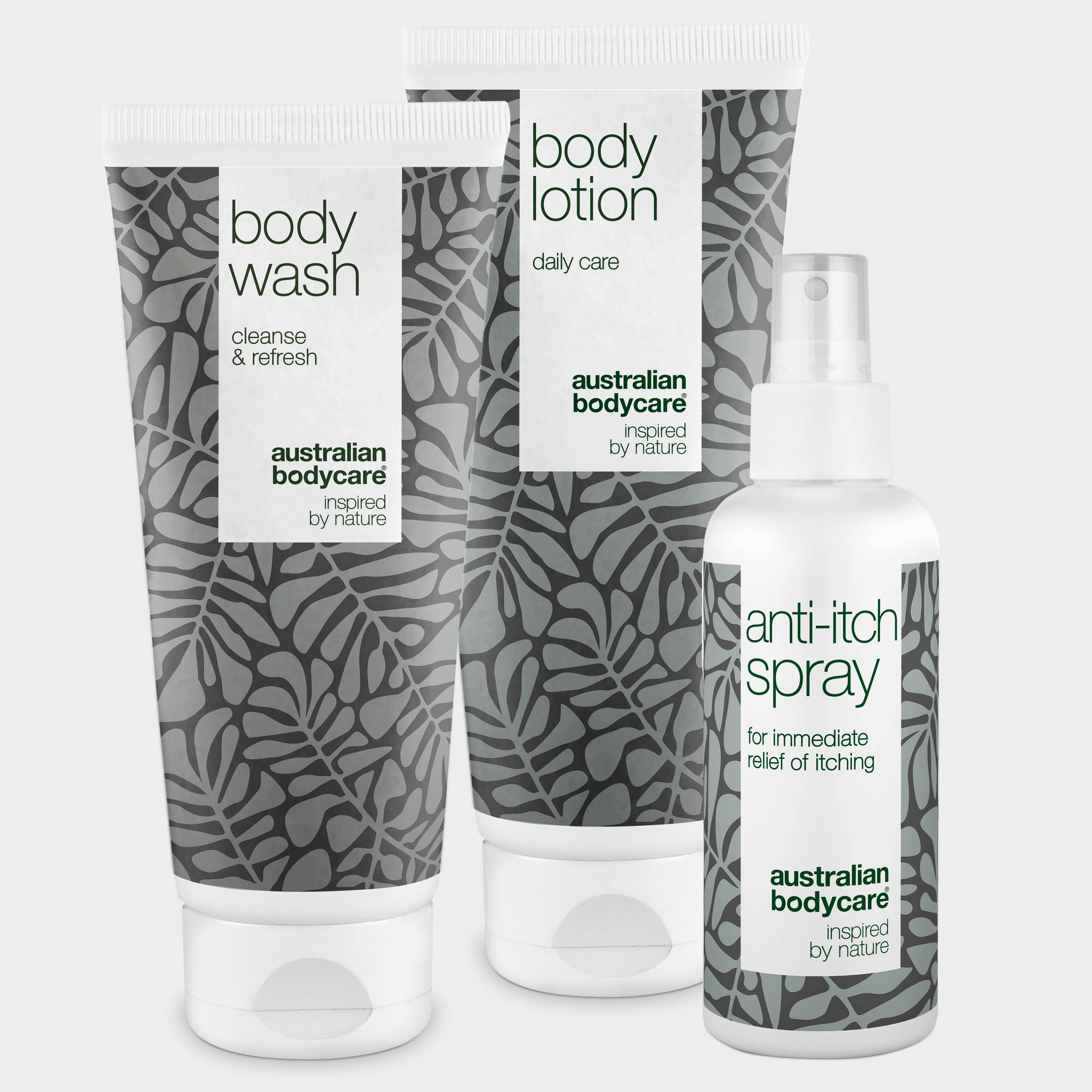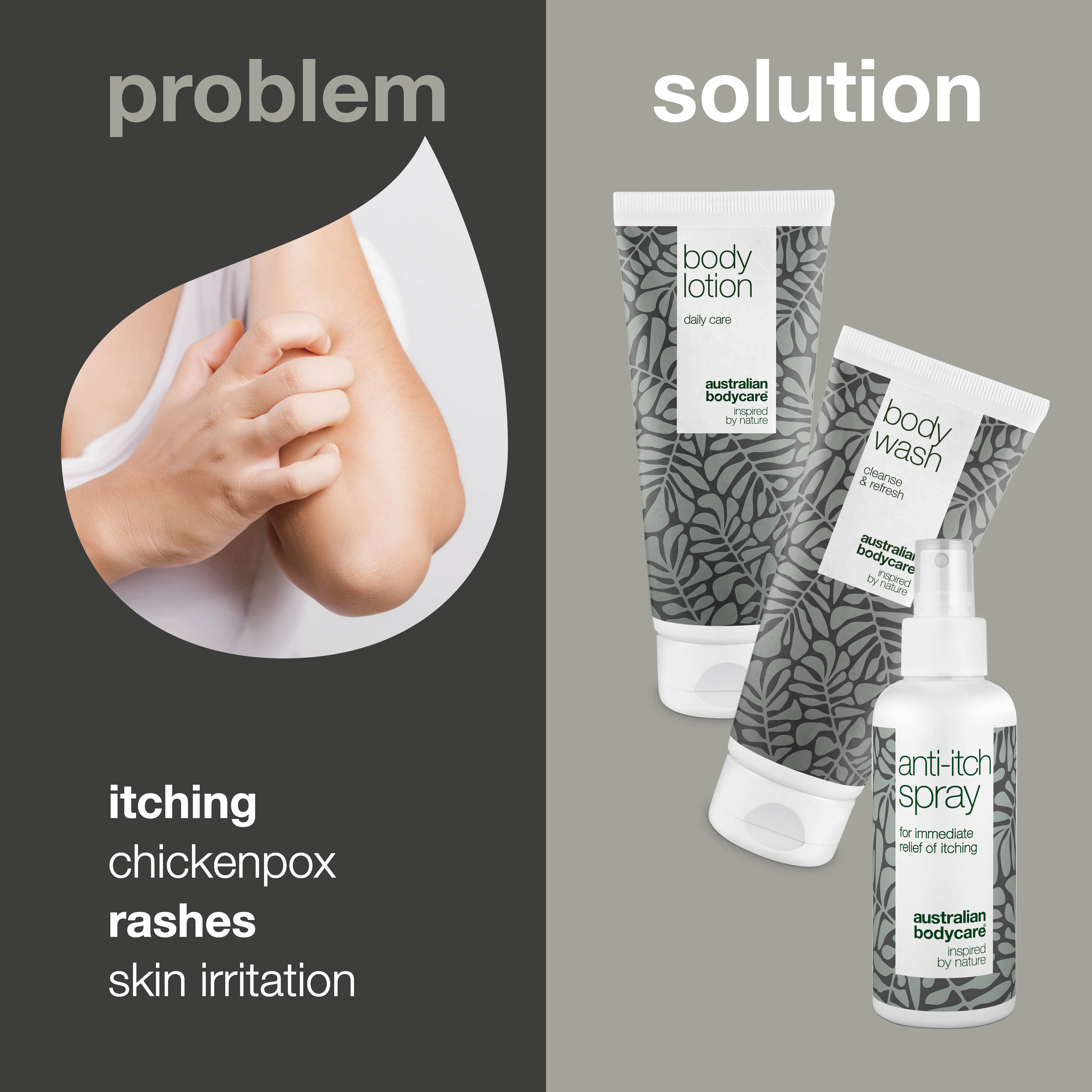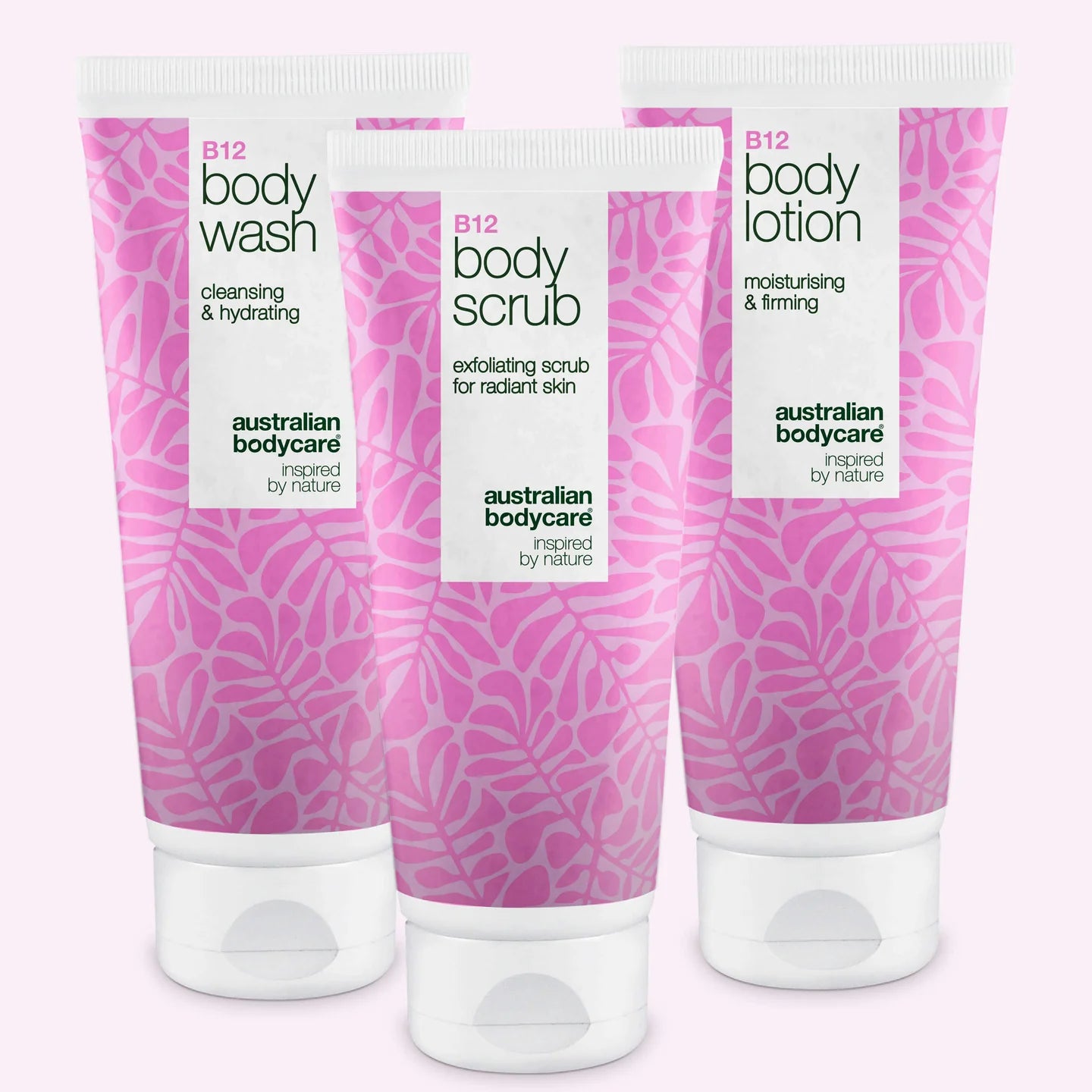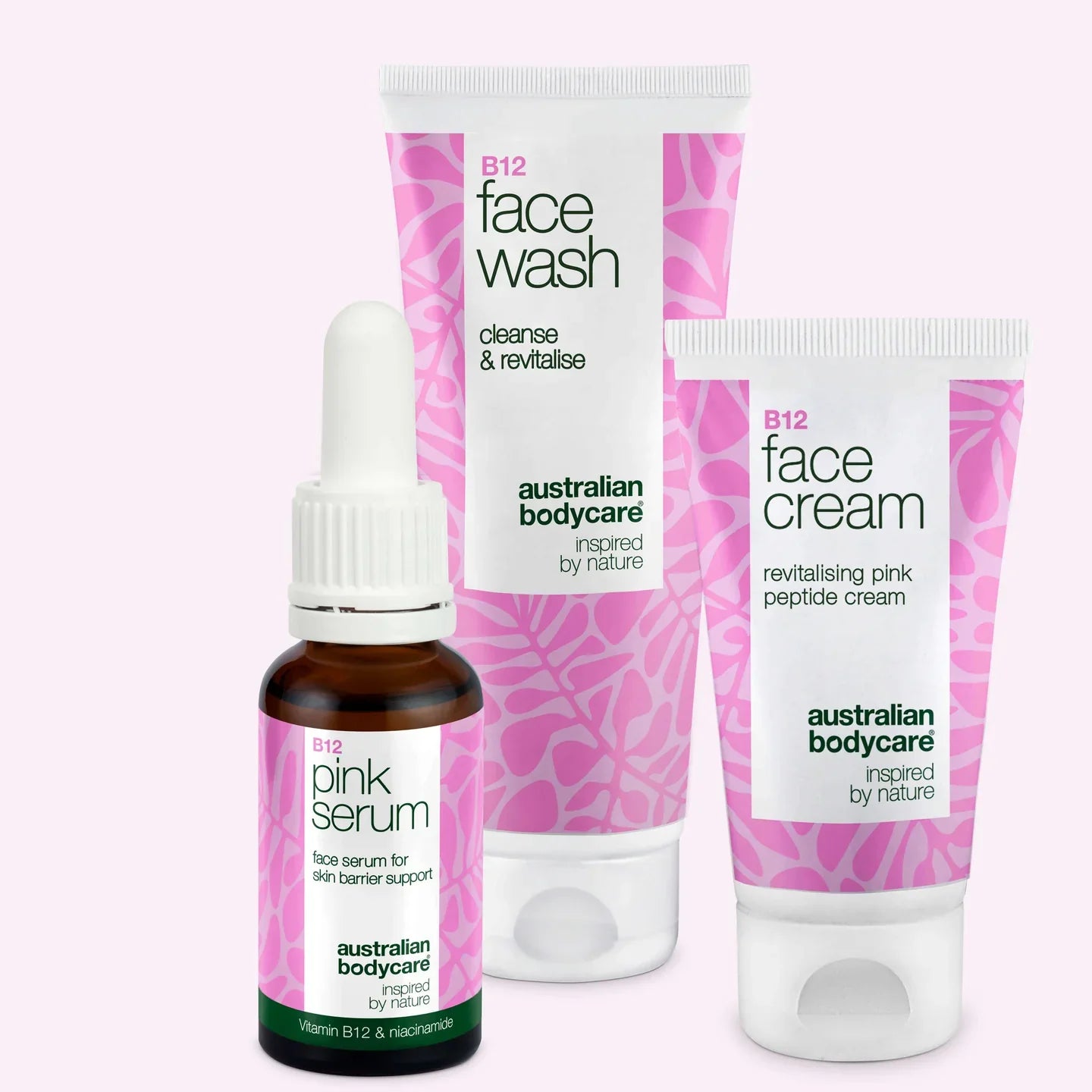What is chickenpox?
You are sure to have heard of chickenpox, also called varicella. You may have had it or been afraid you had it, and occasionally, because of the severe itching, it may progress to impetigo.
Chickenpox is one of the most contagious childhood diseases. Symptoms are fever and a rash, and it is caused by the varicella-zoster virus (VZV). When a child is infected with chickenpox, it has usually come from someone in the child’s social circle who has chickenpox.
Table of contents
It is a very common disease, and the course is usually mild or moderate in children with a normal immune response. Most children catch the disease while they are small or babies, and are then immune.
FACTS: 5 quick points about chickenpox
- Chickenpox is a virus disease, and causes fever and a rash
- Chickenpox is spread through droplets, and is the most contagious of all childhood diseases
- When the scabs form the risk of infection is over
- Most children get chickenpox when they are very young, and then they have long-term immunity
- There is a vaccine against chickenpox, but it is not included in the general child vaccination programme in the UK
How common is chickenpox?
Chickenpox is a very common disease among children. It most often affects children, toddlers or babies, and chickenpox is the most contagious of all childhood diseases.
This is because it is transmitted by airborne droplets, which are tiny particles of fluid spread when a person sneezes, coughs or talks, and in vomit, pus, urine or blood. If a child is in contact with other children, the infection is very easily passed from one to another.
As an overall rule, a person will only catch chickenpox once in a lifetime, although it may recur in a few later on.
About 95 % of the adult population have had chickenpox as children, which is a strong indicator of how common the disease is.
Causes of chickenpox
Chickenpox is highly contagious, and the infection is passed on in fluid from blisters, on hands, toys or the like, and children can also pass on the infection when they cough or sneeze. Chickenpox is caused by infection with VZV, and passed on as described here.
A person is infectious for about two days before the rash itself appears, and until scabs have formed on the blisters. The incubation period, before the disease breaks out, is about ten to twenty days after being infected with chickenpox.
Chickenpox can be passed on from a person who has chickenpox or a person who has shingles. The great majority of people catch chickenpox as children and become immune. If someone catches chickenpox again later in life, it is called shingles instead. It is caused because the virus remains in the body, and the disease can break out again, for example if you have a weakened immune system.
Chickenpox – symptoms
Chickenpox is usually a mild illness. However, in most cases the child feels unwell and has a temperature the day before the rash appears, or at the same time.
Chickenpox can vary widely, and some children have only very few spots without fever (and may not even notice them), while others may be seriously unwell, with a high temperature and many spots all over the body.
If the rash itches badly and the child scratches a lot, there may be a risk of impetigo.
Symptoms of chickenpox:
- A rash that begins on the face and body, and can spread to the scalp, arms and legs
- Itching rash
- A rash in the form of red spots, which after a few hours develop into blisters, and after a couple of days become sores
- New blisters continue to appear for three to six days
- Fever
- Fever and feeling unwell before the rash breaks out
When children catch the disease, they are usually less seriously affected, while it is often more severe in adults.
The course of chickenpox
When someone catches chickenpox, the disease will probably run a course like this:
- Chickenpox starts with slight fever and a headache for one or two days
- After a couple of days with a headache and mild fever, the rash will normally start to appear on the face and scalp
- In the following three to six days the rash will spread, and small red spots will erupt, and then become blisters, which will eventually burst and become sores with a scab. The child will thus have old and new spots at the same time
- In very rare cases there may also be a respiratory infection, which can affect the brain and cause a state of inflammation, leading to semi-consciousness, cramp and stiffness of the neck
Chickenpox usually starts on the scalp and spreads to the face. It can then spread to the arms and legs and the rest of the body. In some cases, however, a child may have spots on the mucous membranes in the mouth, eyes or genitals.
Chickenpox rarely causes scarring, but it is wise to be aware of it nevertheless, and take care not to scratch the sores and spots too much. It may otherwise cause scarring, and it can also lead to impetigo.
There are several products on the market which will soothe the itching effectively and make chickenpox less unbearable. Among other things, Australian Bodycare has a pack of 3 products which soothe itching.
Is chickenpox dangerous?
For those who are generally healthy and have a normal immune response, chickenpox is rarely dangerous, so as a rule it is a fairly harmless disease, and patients usually recover without treatment.
There are situations, however, when chickenpox can have serious consequences. This applies for example to:
- People with blood cancer or other forms of cancer
- Newborn babies whose mothers have not had chickenpox
- Pregnant women in the later stages of pregnancy, if they have not had chickenpox
- Anyone who has not had chickenpox and is taking immunosuppressive medication
The reason why chickenpox may be especially dangerous for this group is their reduced immune response. Combined with a weakened immune response, chickenpox can have more serious consequences. Here a vaccine can be considered, but pregnant women should wait with the vaccination until after giving birth.
Complications are rare with chickenpox, but it can cause:
- Pneumonia in adults
- Benign myocarditis in children
- Bacterial skin infections in the rash
Chicken pox the first time, shingles the next
Is it possible to get chickenpox more than once? Here the answer is yes, although it is very rare. After an infection the great majority will be immune for the rest of their lives, but a few will have chickenpox again.
It is usually seen among those with reduced immune response, but in other cases it is possible that in the first case the disease was not in fact chickenpox, but was wrongly diagnosed.
If an adult has a second attack of chickenpox, it is called shingles. This is because the virus remains in the body all the time, and thus can cause shingles if it becomes active again.
What is shingles?
Shingles (herpes zoster) is a painful rash caused by the chickenpox virus. It is only possible to have shingles if you have previously had chickenpox.
The chickenpox virus remains in the nerves of the body, and shingles is therefore a local eruption of chickenpox in that area. Shingles can appear anywhere on the body or the face, but it will always be unilateral, which means it is exclusively either on the right or the left side.
Even though shingles is painful, it is neither life-threatening nor dangerous. As a rule, shingles starts with a headache and feeling unwell, and then stinging and pain are felt in the skin in the affected area. After three to six days a rash will appear, with redness and blisters in the area, which eventually form scabs.
In mild cases, shingles can be treated with pain killers, patience and good hygiene. If the pain is severe, it may be necessary to have morphine prescribed by a doctor.
Treatment for chickenpox
What should you do if you suspect that your child has chickenpox? If you can recognise some of the symptoms of chickenpox listed above, you should first and foremost keep your child home from the nursery or school – at least until the fever has gone down and the last spot had dried. That way you ensure that the child will not infect any of the other children.
Normally chickenpox is not treated with medication, but you can instead use creams to soothe the itching. Apart from that, it is important to maintain good hygiene. If the itching is very severe, you can help your child by applying a mild, soothing cream on the area, such as these from Australian Bodycare.
Severe cases can be treated with medication
In some cases it may be advisable to treat the child with medication called Acyclovir, which may come in the form of tablets, a fluid solution or an injection, and is effective against chickenpox. However, in normal cases it is only effective if treatment is given within 24 hours. In some cases this treatment can be given to newborn babies who have developed complications, or particularly vulnerable children with chronic diseases and reduced immune response.
A vaccine is available for risk groups
There is also a vaccine against chickenpox, but it is not given on a routine basis in the UK, as chickenpox is normally fairly harmless. The vaccine is used, however, for those in risk groups, such as children who suffer from leukaemia.
What can you do to soothe the itch?
There is in principle no treatment for chickenpox, but there are things you can do to keep the itching to a bearable level. There are a number of creams and lotions that can soothe the itching.
For example, Australian Bodycare has a series of products that effectively relieve itching from rashes such as chickenpox. The series includes a mild body soap, a good body lotion for daily use, and a cream to give extra care to dry and damaged skin – and chickenpox. The products contain Tea Tree Oil, which is antiseptic, to keep the body free of dirt and bacteria.
FAQ - Frequently asked questions
What is chickenpox?
Chickenpox appears as an itching rash with oozing blisters which later form a scab. Chickenpox is caused by the varicella-zoster virus (VZV), and is the most contagious of childhood diseases.
Most often, it affects children, who then develop lifelong immunity, although a few may have a later eruption of chickenpox, which is then called shingles.
Why do people get chickenpox?
Chickenpox is transmitted in droplets, which means it is passed on from coughing, sneezing or talking, and contact with fluid from chickenpox blisters on hands etc.
Chickenpox is the most contagious childhood disease, and about 95 % of the population have had chickenpox as children.
What does chickenpox look like?
The difference between scabies and chickenpox is that chickenpox is caused by a virus, while scabies is caused by a mite under the skin. Both cause itching and a rash with reddened skin and oozing blisters.
Scabies itches most at night, and the rash does not appear on the head and neck. In contrast, chickenpox starts on the scalp, and spreads to the face and neck, and gradually to the rest of the body. This makes it easy to distinguish between the two.
If you are uncertain about whether your child has caught chickenpox or scabies, you should see a doctor, since chickenpox will heal by itself, but scabies requires treatment.
What causes chickenpox?
Chickenpox arises from an infection from others who have active chickenpox. The disease is contagious a couple of days before the rash appears, until scabs have formed on all the blisters.
It is advisable to keep a child at home until all spots are gone, to be on the safe side, as chickenpox is highly contagious and can be passed on through coughing, sneezing, talking and other contact.
Is chickenpox dangerous?
For those who are generally healthy and have a normal immune response, chickenpox is quite harmless. However, there are some groups for whom chickenpox can have more serious consequences. This applies to anyone with reduced immune response, possibly in connection with a disease such as leukaemia.
How contagious is chickenpox?
Chickenpox is the most contagious of all childhood diseases. About 95 % of the adult UK population have had chickenpox.
It is passed on through droplets, which means it is passed through the air from speaking, coughs, sneezes and so on. In addition, chickenpox is passed on through physical contact with the blisters or the fluid from them.
Does chickenpox only affect children?
Chickenpox is generally considered a childhood disease, but adults can also catch it. When adults get chickenpox, there may often be complications.
If you have not had chickenpox as a child, it is advisable to take extra care. This applies especially during pregnancy, when there is an extra risk of viral pneumonia.
Can you get chickenpox twice?
It is possible to have chickenpox twice, as the virus remains latent in the body. In rare cases the virus may break out again. When chickenpox occurs for a second time, it is called shingles. This is usually seen in those with a reduced immune response.
Can you be vaccinated against chickenpox?
There is a vaccine against chickenpox, but it is not routinely given in the UK. This is because chickenpox is regarded as a harmless disease that in most cases will go over by itself.

